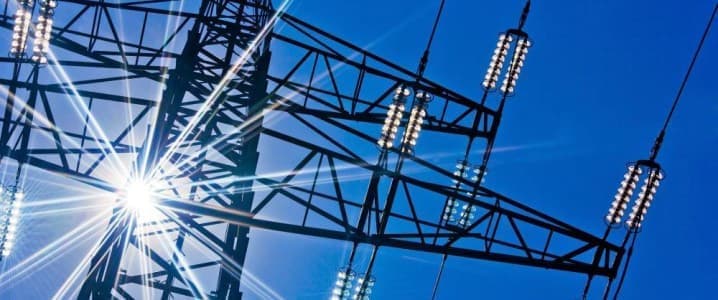Electricity prices are experiencing a significant surge, drawing attention from analysts and consumers alike. According to data analyzed by Peter Tchir of Academy Securities, electricity costs, as measured by the Consumer Price Index (CPI), have skyrocketed by nearly 35% since 2020, a stark contrast to the less than 12% increase recorded during the preceding decade from 2010 to 2020. This sharp rise signals a potential shift in economic conversations as households begin to feel the impact of higher energy bills.
The recent focus on electricity prices comes at a time when consumers are already acutely aware of fluctuations in gasoline costs. Fuel prices are prominently displayed at gas stations, making them more visible during routine travel. In contrast, electricity bills arrive monthly, often leading to less immediate awareness of rising costs. However, Tchir predicts that as electricity inflation approaches double-digit annual rates, discussions surrounding energy prices will intensify.
Understanding the Implications of Rising Electricity Costs
The implications of increasing electricity prices extend beyond household budgets. Tchir notes that the energy sector presents significant opportunities for growth as prices rise. As policymakers turn their attention to energy costs, various sectors, including renewable energy and traditional electricity generation, may see increased investment. This trend could create more opportunities for innovation and competition.
In particular, the intersection of rising electricity prices and advancements in technology, particularly in the artificial intelligence (AI) sector, presents both challenges and opportunities. Companies involved in AI must remain vigilant regarding energy costs, as high electricity prices could impact operational expenses. Tchir emphasizes the importance of keeping energy production and consumption localized, especially with international competitors, like Saudi Arabia, positioning themselves in the energy market.
Despite the growing concern about electricity inflation, Tchir does not characterize the situation as alarming, but rather as a noteworthy development. He suggests that the CPI calculation may not fully capture the actual inflation consumers experience in their electricity bills. As the dialogue around energy prices continues to evolve, it is likely that electricity inflation will emerge as a key economic narrative in the coming months.
In summary, the sharp increase in electricity prices presents an emerging topic in economic discussions. With a 35% rise since 2020, consumers and analysts alike are poised to pay closer attention to energy costs. As the economy adapts to these changes, the potential for growth in the energy sector, coupled with the demands of modern technology, will be critical in shaping future strategies.






































































